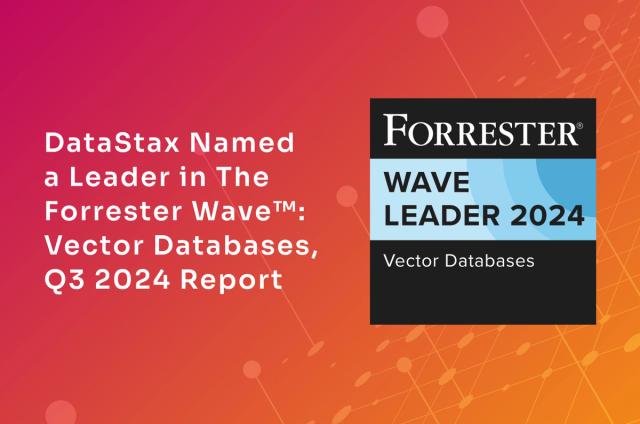The Best Database for eCommerce Applications

The ecommerce market is thriving. eCommerce topped 2.4 trillion globally in 2017 and is expected to nearly double to $4.058 trillion by 2020. Getting your slice of that ever-increasing pie starts with creating powerful eCommerce experiences that keep your customers coming back for more. Doing that requires choosing the right database to power your customer-facing eCommerce applications. As you begin your search for the best database for eCommerce applications, you’ll quickly find out you have a lot of options. What features should your eCommerce database include? Let’s take a look:
1. Scalability
The best eCommerce databases provide resiliency and speed at scale. To ensure your site can keep pace with your customers, look for a cloud database built with masterless architecture and advanced replication functionality. Macy’s, for example, recently turned to DataStax Enterprise to power its Black Friday and Cyber Monday sales; the database was able to accommodate millions of requests per second with 100% uptime.
2. Security
Major data breaches get splashy news play and create endless “FUD” (fear, uncertainty, and doubt) in the minds of customers and investors alike, apart from leading to potentially catastrophic fines and penalties. The last thing you want is for your company’s name to end up on the major data breach list. To avoid breaches and data leakage—as well as the accompanying bad press and irate customers—look for an eCommerce database that provides advanced security features. Leading databases offer identify management for authentication and authorization, encryption, auditing and compliance, and more.
3. Control
The data your organization controls is one of your most important assets. You can’t afford to give up any control over the sovereignty of your data—for both regulatory and business reasons. When searching for an eCommerce database, look for a solution that provides data autonomy, i.e., the ability for your organization to retain complete control over your data—whether you’re using a hybrid cloud, a public cloud, a private cloud or your own data center, or moving from one to the next.
4. Performance
Your eCommerce database needs to be ready to handle a large influx of traffic that may come your way at any time. Otherwise, the customer experience will suffer as folks head to your site only to be greeted by pages that take forever to load—if they even resolve in the first place. According to Kissmetrics, 40% of visitors will abandon your site if it doesn’t load within three seconds. For the best results, look for a cloud database that seamlessly scales to accommodate traffic peaks.
5. Multi-model
To get the best results from your eCommerce applications, your database needs to be able to uncover relationships between complex data sets to provide individualized recommendations to each of your visitors. This is why using a multi-model database—one that can process tabular, key-value, JSON and graph data, finding the relationships between each disparate data type—is so important. The more individualized an experience your database can provide, the more likely your customers will be to reach into their wallets.
6. Flexibility
The best eCommerce databases will work within your existing infrastructure—not force you to reinvent the wheel altogether. For example, if you’re like most businesses and are starting to use hybrid cloud, you need a flexible cloud database that can be deployed in any environment. Leading database solutions will enable you to migrate from one cloud to the next, thereby avoiding vendor lock-in. With a flexible database on hand, the choice of where and how to host your applications remains yours and yours alone.
7. Availability
You can’t sell anything if your website isn’t accessible when potential customers visit it. To this end, the database that powers your eCommerce applications needs to be highly available. That way, your business can generate revenue 24 hours a day—even when you’re asleep. The right database can help your organization unlock significant eCommerce revenue streams—and keep the river flowing for the foreseeable future. To learn more about which database might work best for your organization, check this out.
Evaluating Databases for eCommerce (eBook)
Learn the specific things you need to look for in a database if you’re going to be using it for eCommerce applications. READ NOW




